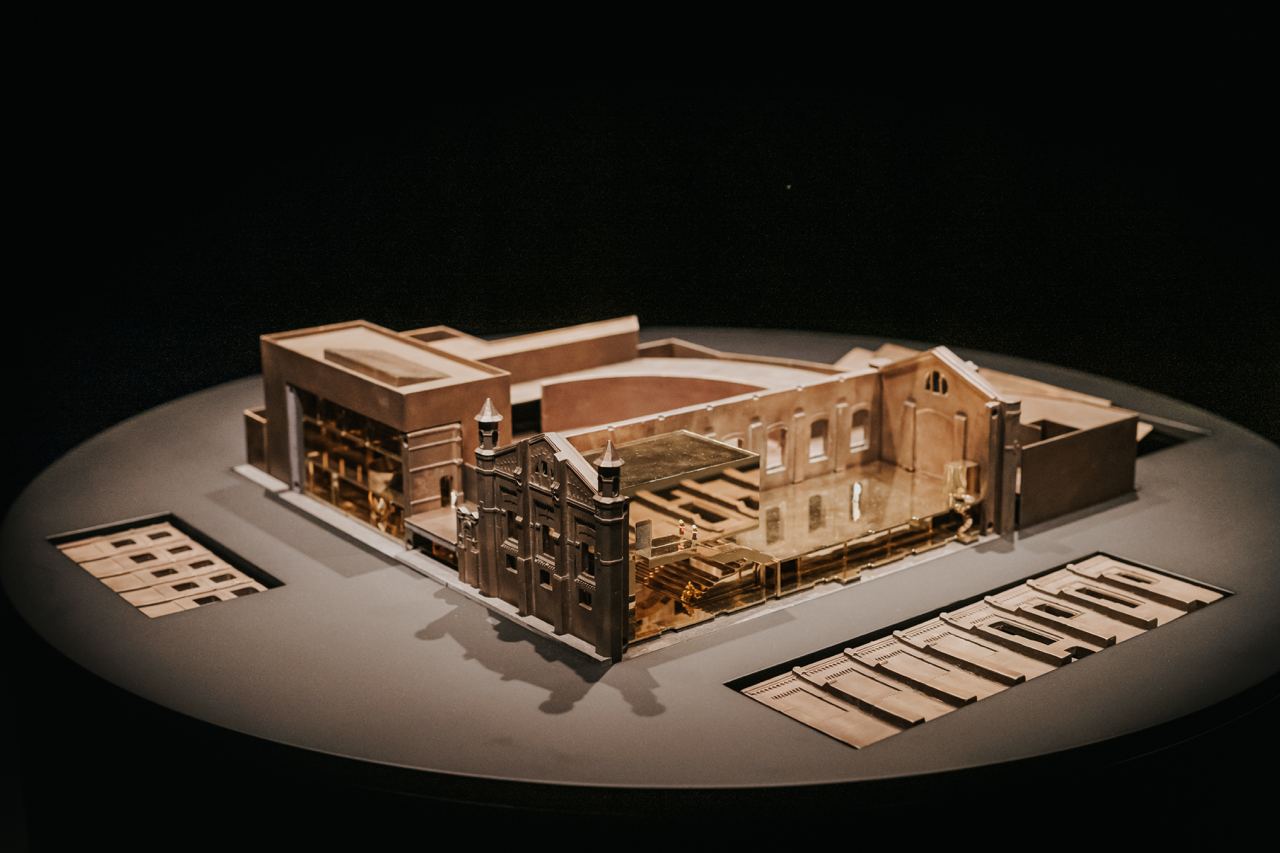The Art and Culture Development Foundation took part in Design Miami/Basel

The Art and Culture Development Foundation (ACDF) participated in the 16th edition of Design Miami/Basel (14-19 June 2022) in Basel, Switzerland with the brand-new concept of the development of the Centre for Contemporary Arts in Tashkent designed by the French architecture firm Studio KO.
Design Miami/Basel (DM/B) is the leading design fair with a strong line up of over 30 international galleries and designers. It connects the world through collectible design, innovative concepts, architectural discoveries and a series of live talks and is taking place parallel to Art Basel. This year, DM/B explored the theme of The Golden Age set up by its Curatorial Director, Maria Cristina Didero.
As part of the Special Project section of DM/B, ACDF invited visitors to discover the architectural concept made by Studio KO for the renovation of a 1912 building in Tashkent. Made out of bricks and initially a diesel station, it used to produce electricity to the first tramway line of the capital of Uzbekistan.
Within their conceptual design work, Studio KO engaged in a conversation with Miza Mucciarelli, modeling artist and founder of the Atelier Misto, about the way model making could address the project. Two months later, after creating a very contrasted conceptual maquette, opposing box wood and black corian, came the time to create the final one, whose main purpose would be to stay, at the scale of 1.100, in the very heart of the final building. At the booth (#X05), visitors had the chance to view the 3D model of the Centre and learn more about ACDF’s missions to create a unique venue in the region.
"Contemporary cultural institutions are complex creative environments tailored for the needs of producers and diverse audiences. Our collaboration with Studio KO will ensure that the Centre for Contemporary Arts is an inclusive space where cultural practitioners of different genres and backgrounds will be able to express themselves and share their work with visitors from Uzbekistan and beyond. Located in a historic building in Tashkent the Centre is being developed according to the state-of-the-art principles and technologies and it will tremendously contribute to the innovation and sustainability of the cultural sphere of Uzbekistan," — Gayane Umerova, Executive Director of the Art and Culture Development Foundation of the Republic of Uzbekistan.
“In 2020, the Foundation commissioned Studio KO to convert a former diesel station in Tashkent into a Centre for Contemporary Arts. Dedicated in the first place to a local public, it also proved to be of great interest because of the architectural quality of the existing industrial buildings, and the urgent need — as a principle to extend to all existing buildings — to rethink the several lives it could have. Because the project had matured, in particular after client’s feedback on the meanings of contrasts and colors in Uzbekistan, it became obvious that the final maquette had to reflect the targeted point of balance. A project that would express the tension in a more subtle way, that would use softness to tell the collision of times and techniques. And what better to merge them all than metal; the one you melt, the one you cut. All made one with the magic of fire,” — Karl Fournier and Olivier Marty, Founders of the Studio KO.